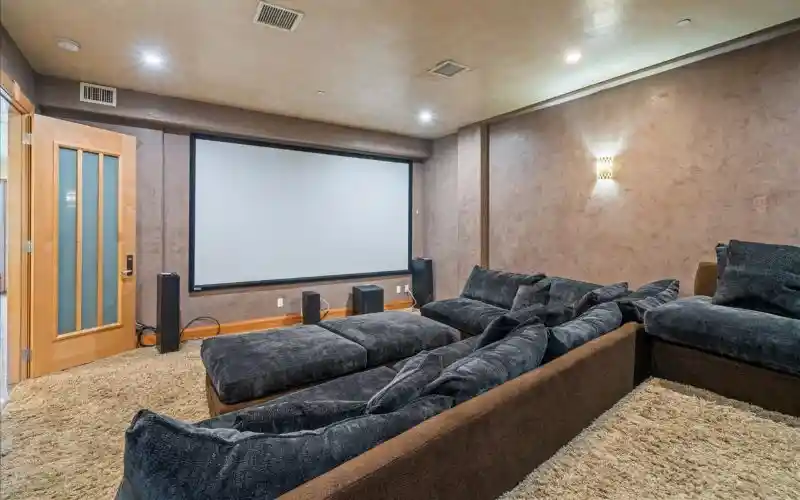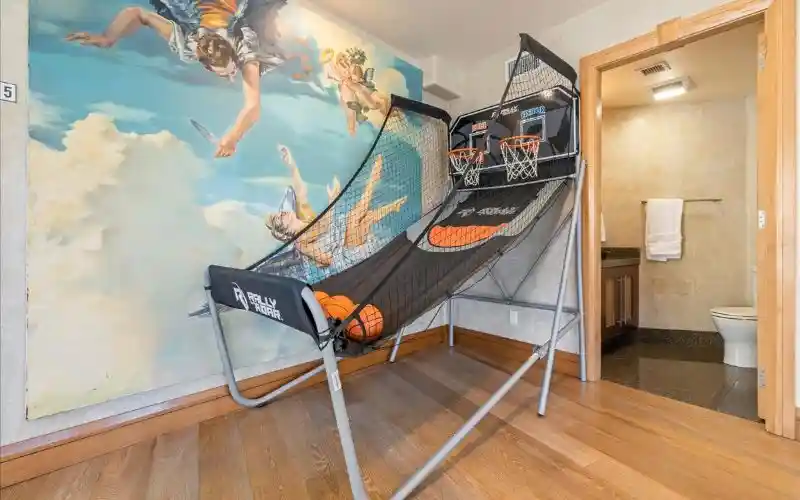
Ritz Recovery
Verified
Verified
This provider’s information has been quality-checked by RehabPath’s Research Team for accuracy and completeness, including data verification through appropriate third-party organizations.View This Center’s Verified License
Los Angeles, California, United States
Provider’s Policy
$45,000+
- 30-90 days
A private, luxurious center in the hills of LA treating addiction and co-occurring mental health conditions with a full continuum of personalized care.

Call Ritz Recovery
Connect with Ritz Recovery by calling their admissions team directly.
- Message Us















Private And Personalized
Ritz Recovery personalizes treatment to each client and their needs. An initial assessment guides customized treatment from residential to outpatient care. Ritz Recovery provides treatment in a private LA residence with single-bed rooms, community spaces, and a discreet rooftop pool and spa.


Comprehensive Treatment Options
Ritz Recovery treats both addiction and co-occurring mental health conditions for a comprehensive treatment experience. Their dual-diagnosis care addresses substance use and mental health conditions like anxiety, depression, and trauma. Evidence-based therapies, individual therapy, and group therapies aim to address both conditions at once. Ritz Recovery also offers holistic services to heal the body and spirit simultaneously.
Multiple Levels of Care
Ritz Recovery’s levels of care include residential treatment with detox, an intensive outpatient program (IOP), and sober living. Clients can progress through all levels of care at Ritz Recovery. Their IOP includes 2 weekly individual therapy sessions, adjunctive holistic services, and group therapy. Their sober living homes provide a safe space to transition into more independent living, with live-in staff and comfort amenities.


Evidence-Based And Holistic
Ritz Recovery blends evidence-based therapies and holistic services to reach the mind, body, and spirit. Their evidence-based therapies include CBT, art therapy, and other behavioral therapies. Ritz Recovery’s holistic services include acupuncture, yoga, and personal training.Their on-site amenities provide opportunities for physical healing, including a fully equipped gym, pool and spa, a game room for peer activities, and a theater room.
Center Overview
Founded
2023
Occupancy
6-15
Languages
Accreditation
Price & Length
Who We Treat
Men
Women
Men and Women
Men and Women
Men and women attend treatment for addiction in a co-ed setting, going to therapy groups together to share experiences, struggles, and successes.
Address
6451 Weidlake Dr, Los Angeles, CA 90068
Treatment
Specializations
Alcohol
Alcohol
Using alcohol as a coping mechanism, or drinking excessively throughout the week, signals an alcohol use disorder.
Benzodiazepines
Benzodiazepines
Benzodiazepines are prescribed to treat anxiety and sleep issues. They are highly habit forming, and their abuse can cause mood changes and poor judgement.
Co-Occurring Disorders
Co-Occurring Disorders
A person with multiple mental health diagnoses, such as addiction and depression, has co-occurring disorders also called dual diagnosis.
Cocaine
Cocaine
Cocaine is a stimulant with euphoric effects. Agitation, muscle ticks, psychosis, and heart issues are common symptoms of cocaine abuse.
Heroin
Heroin
Heroin is a highly addictive and illegal opioid. It can cause insomnia, collapsed veins, heart issues, and additional mental health issues.
Marijuana
Methamphetamine
Methamphetamine
Methamphetamine, or meth, increases energy, agitation, and paranoia. Long-term use can result in severe physical and mental health issues.
Treatment Services
Detox
Detox
Detox fully and safely removes toxic substances from the body, allowing the next steps in treatment to begin with a clean slate.
Outpatient Program
Outpatient Program
During outpatient rehab, patients attend a structured treatment program while continuing to live at home.
Residential
Residential
In a residential rehab program, patients live onsite, with access to daily treatment and 24-hour care. An average stay is 30-90 days.
Sober Living
Sober Living
These structured living environments help people transition out of rehab. Residents have more freedom than they do during rehab, but still follow certain rules.
Outpatient Therapy
Therapies
Acupuncture
Group Therapy
1-on-1 Counseling
1-on-1 Counseling
Patient and therapist meet 1-on-1 to work through difficult emotions and behavioral challenges in a personal, private setting.
Cognitive Behavioral Therapy
Medication-Assisted Treatment
Medication-Assisted Treatment
Combined with behavioral therapy, prescribed medications can enhance treatment by relieving withdrawal symptoms and focus patients on their recovery.
Nutrition Counseling
Nutrition Counseling
Nutritious food helps patients heal from within, setting them up for mental and bodily wellness as they learn about healthy eating.
Yoga
Yoga
Yoga is both a physical and spiritual practice. It includes a flow of movement, breathing techniques, and meditation.
What We Treat
Co-Occurring Disorders
Co-Occurring Disorders
A person with multiple mental health diagnoses, such as addiction and depression, has co-occurring disorders also called dual diagnosis.
Cocaine
Cocaine
Cocaine is a stimulant with euphoric effects. Agitation, muscle ticks, psychosis, and heart issues are common symptoms of cocaine abuse.
Benzodiazepines
Benzodiazepines
Benzodiazepines are prescribed to treat anxiety and sleep issues. They are highly habit forming, and their abuse can cause mood changes and poor judgement.
Opioids
Opioids
Opioids produce pain-relief and euphoria, which can lead to addiction. This class of drugs includes prescribed medication and the illegal drug heroin.
Methamphetamine
Methamphetamine
Methamphetamine, or meth, increases energy, agitation, and paranoia. Long-term use can result in severe physical and mental health issues.
Heroin
Heroin
Heroin is a highly addictive and illegal opioid. It can cause insomnia, collapsed veins, heart issues, and additional mental health issues.
Post Traumatic Stress Disorder
Post Traumatic Stress Disorder
PTSD is a long-term mental health issue caused by a disturbing event or events. Symptoms include anxiety, dissociation, flashbacks, and intrusive thoughts.
Marijuana
Depression
Depression
Symptoms of depression may include fatigue, a sense of numbness, and loss of interest in activities. This condition can range from mild to severe.
Drug Addiction
Drug Addiction
Drug addiction is the excessive and repetitive use of substances, despite harmful consequences to a person’s life, health, and relationships.
Alcohol
Alcohol
Using alcohol as a coping mechanism, or drinking excessively throughout the week, signals an alcohol use disorder.
Anxiety
Anxiety
Anxiety is a common mental health condition that can include excessive worry, panic attacks, physical tension, and increased blood pressure.
Bipolar
Bipolar
This mental health condition is characterized by extreme mood swings between depression, mania, and remission.
Obsessive Compulsive Disorder
Obsessive Compulsive Disorder
OCD is characterized by intrusive and distressing thoughts that drive repetitive behaviors. This pattern disrupts daily life and relationships.
Trauma
Trauma
Some traumatic events are so disturbing that they cause long-term mental health problems. Those ongoing issues can also be referred to as ‘trauma.’
Experience
Personal Amenities
Personal Fitness Trainer
Air-Conditioned Rooms
Personal Chef
Private Rooms
Amenities
Pool
Access to Nature
Fitness Center
Gardens
Hot Tub
Jacuzzi
Recreation Room
Theater
Activities
Games
Movies
Physical Fitness
Off-Site Activities
Yoga
Yoga
Yoga is both a physical and spiritual practice. It includes a flow of movement, breathing techniques, and meditation.
Physical Fitness
Acupuncture
